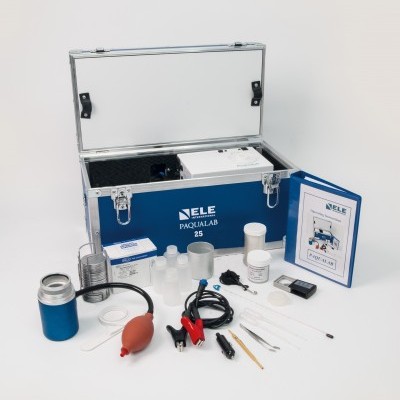
The ELE Paqualab incubators are fully portable which enables microbiological water analysis to be carried out in remote locations which lack normal laboratory facilities. Various power supply options are available including internal rechargeable batteries or an external 12V DC, 24V DC, 110V AC, or 240V AC supply. This flexibility means that samples can be incubated on-site, in a car or in a laboratory so producing accurate results in the shortest possible time.


